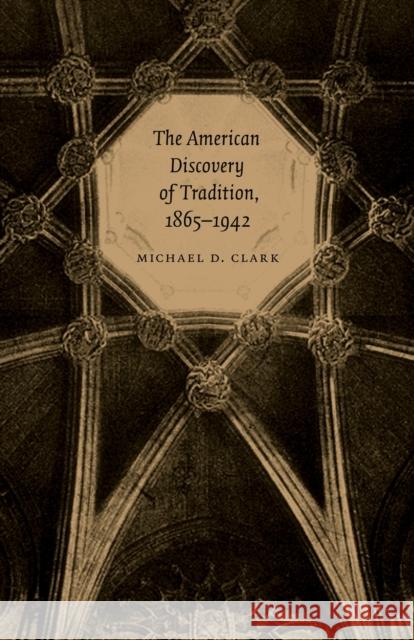The American Discovery of Tradition, 1865-1942 » książka
The American Discovery of Tradition, 1865-1942
ISBN-13: 9780807130414 / Angielski / Twarda / 2005 / 268 str.
Between the American Revolution and the Civil War many Americans professed to reject altogether the notion of adhering to tradition, perceiving it as a malign European influence. But by the beginning of the twentieth century, Americans had possibly become more tradition-minded than their European contemporaries. So argues Michael D. Clark in this incisive work of social and intellectual history. Challenging reigning assumptions, Clark maintains that in the period 1865 to 1942 Americans became more conscious of tradition as a social force, viewed it more positively, and used it more eclectically and selectively for personal and social enrichment. Clark expands upon the existing body of scholarly work by clearly distinguishing tradition from other ways of relating to the past and by studying particular traditions that shaped American thought and culture. He gives primary attention to five individuals who represent the growing influence of tradition in this period: the popular philosopher and historian John Fiske, representing Anglo-American tradition; the Virginia historians Philip Bruce and Lyon G. country's leading neo-Gothic architect, Ralph Adams Cram, representing a surprisingly pervasive medieval tradition; and the sociologist Charles H. Cooley, representing views on immigrant traditions. The American Discovery of Tradition, 1865-1942 reveals the shaping of the modern American self and its distinctive attitude - both positive and negative - toward tradition.











